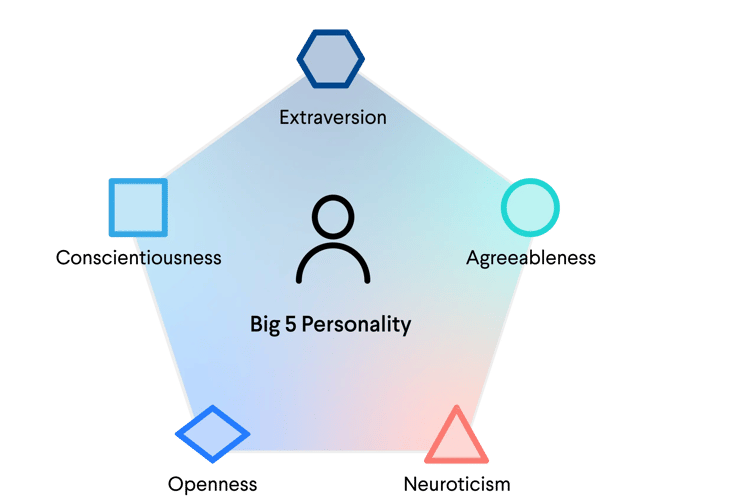It’s safe to say that selling isn’t as easy as before, meaning current sales strategies and tools may not be adequate enough if companies want to gain a competitive edge in this challenging post-Covid business environment. Sales teams need to change their approach and improve their soft skills to engage potential clients better.
One thing is clear - traditional sales enablement is no longer enough if companies want to close deals successfully in the new world.
So how can organizations win sales training in the new world? How can they develop a winning soft skill training course?
What’s in this post?
- Developing soft skills: the secret to closing deals
- Pitfalls of current sales training initiatives
- Training with AI: What effective soft-skill training looks like today
- Retorio's AI-video simulation training platform
Developing soft skills: The secret to closing deals
People do business with people they like; we buy from those we connect with. The bottom line is, that sales is essentially a battle of connecting with the prospect.
"The proportion of companies addressing empathy and interpersonal skills has doubled since the pandemic."
And if we boil things down, the key to that lies in soft skills training. That’s right. It’s not about how big the companies were that they worked for in the past, or about how long they’ve been in the industry. A good sales rep has the ability to empathize with the prospect, build a relationship of trust and communicate effectively - they carry A-game soft skills.
In fact, a Deloitte Access Economics Study predicts that two-thirds of all jobs in Australia will rely on soft skills by 2030. That’s why organizations are investing in soft skills training to stay competitive, alongside diversity efforts to empower teams and continue delivering ongoing value for the business.
Hard Skills |
Soft Skills |
| > Technical knowledge | > Relationship-building skills |
| > Job-specific skills | > Ability to collaborate well |
| > Presentation skills | > Active listening |
Pitfalls of current soft skills training initiatives:
As learning and development (L&D) leaders have recognized the need to grow their training initiatives, many organizations have invested in various e-learning platforms as well as increased budgets for soft skill training methods.
More employers plan to increase learning and development investments in 2022 despite the pandemic, continuing an upward trend, according to a survey of nearly 300 HR professionals by software marketplace Capterra.
However, both e-learning platforms and more traditional, in-person training methods aren't without their limitations, particularly when it comes to soft skills training.
Pitfalls of e-learning platforms for soft skills training:
- E-learning training programs are passive, lacking interactivity that keeps trainees engaged.
- They don't provide the opportunity to put learnings into practice and perfect real-life job situations.
- They can't provide tailored feedback.
Pitfalls of only using in-person soft skills training:
- They tend to be costly (flying trainers in, organizing spaces, etc.).
- Flying in trainers and organizing workshops is very time-intensive.
- Workshops are usually one-off events and thus are neither scalable nor sustainable.
Training with AI: What effective soft skills training looks like today
The post-pandemic business environment has instilled in us that we cannot rely on old, known methods to survive in the new, unpredictable environment - this includes new ways of training those vital soft skills we previously talked about, with soft skills training.
So how are L&D leaders keeping up the pace of self-development for sales reps, and establishing soft skills training courses to develop their sales reps' capabilities to thrive in the 'new world'?
According to the 2022 LinkedIn Workplace Learning Report, L&D leaders are doing this by embracing transformation and understanding the opportunities that we have, particularly as the pandemic has sped up digital transformation so dramatically. So it’s no surprise that L&D experts are turning to recent AI simulation technology which focuses heavily on agent skill mastery to elevate their soft skills training programs.
So, how exactly is AI-based soft skills training effective?
Embracing AI Coaching: A Modern Twist to Traditional Training
Innovative approaches, such as AI coaching, are proving to be highly effective in enhancing soft skills. These digital solutions provide tailored feedback and measurable outcomes:
- Performance Improvements: One company recorded a 5.6% improvement after just 12 AI coaching sessions, with projections of a 14.6% improvement after 31 sessions.
- Behavioral Shifts: Concrete behaviors, like "positivity in communication," increased by an impressive 168% after only 8 sessions.
- Accelerated Onboarding: New hires ramp up 38% faster with AI-driven coaching, ensuring they hit the ground running.
- Revenue Boosts: Companies have seen up to a 7% revenue increase within four months thanks to effective AI coaching.
For instance, a global retail brand recently integrated AI coaching into their onboarding process. New employees not only adapted more quickly to the company culture but also demonstrated marked improvements in customer interactions. The result? Higher customer satisfaction—a 16% increase—directly attributed to the enhanced soft skills of the team.
Real-Life Success Stories: Turning Challenges into Opportunities
Many organizations are already reaping the benefits of investing in soft skills training:
- Tech Innovators: A startup shifted from traditional classroom training to a blend of interactive soft skills workshops and AI coaching. Within months, their customer satisfaction rates soared, and the team’s productivity rose by 10%.
- Retail Giants: A leading retail company used AI coaching to bridge the soft skills gap among frontline employees, leading to a 7% revenue increase in just four months.
- Financial Firms: A financial services company revamped its L&D strategy by integrating regular soft skills training sessions. The outcome was not only improved internal communication but also a noticeable retention boost, as 93% of their employees felt more valued.
Why Now Is the Time to Invest in Soft Skills
The landscape for L&D leaders is rapidly evolving. With economic constraints pressing down on budgets, it might seem counterintuitive to invest in programs that aren’t directly tied to the bottom line. However, the numbers tell a compelling story:
- Long-Term Growth: Companies that invest in employee development see sustainable growth and higher profitability.
- Retention and Satisfaction: Employees are more likely to remain with companies that invest in their future.
- Future-Proofing: In an era where AI and automation are reshaping industries, soft skills remain the human edge that technology cannot replicate.
Value adds of using AI Soft Skills Training
- Interactive video simulations means users are actually engaged
No more wasting time and money on passive soft skills training sessions that employees aren't motivated for. AI platforms like the one of Retorio lets employees perfect their skills with highly interactive real-world scenarios.
- It's scalable - the training program grows as your company grows
Unlimited scalability of customized training means your training can grow as your company grows.
- Goodbye to lengthy onboarding processes
Scalable, interpersonal simulations and job role-plays make it possible to ramp up times for training new and existing employees.
- Real feedback, in real-time.
The AI provides immediate feedback for trainees so they can understand on the spot where to improve.
- Train when you need, make mistakes, and improve at your own pace.
Build a peak-performing team by creating the opportunity for employees to perfect their skills regularly with ongoing analysis and feedback.
Retorio's AI-video simulation soft skills training platform
The shifting work environment is keeping up the pace of self-development for individuals in the pursuit to thrive in the competitive ‘new world’. These areas of training all have one overarching foundation, which is that they all require high levels of soft skills - essentially soft skills training.

That is why more and more companies are turning to AI-based soft skills training platforms, such as Retorio, to help their sales staff train and grow their soft skills without limitations.
Retorio's AI platform combines video analysis with role-plays of client simulations to offer interactive soft skills training solutions for customer-facing roles, such as sales and consulting., etc. Their clients, including one of Germany's biggest automotive manufacturers, use Retorio to scale up their soft skills training programs, as well as coach their sales teams.
Want to learn more about how Retorio's AI training platform can change the game in soft skill training your sales reps? Click the button below!
FAQ about Retorio's Training Platform:
References
1. Sales is essentially a battle of connecting with the prospect






